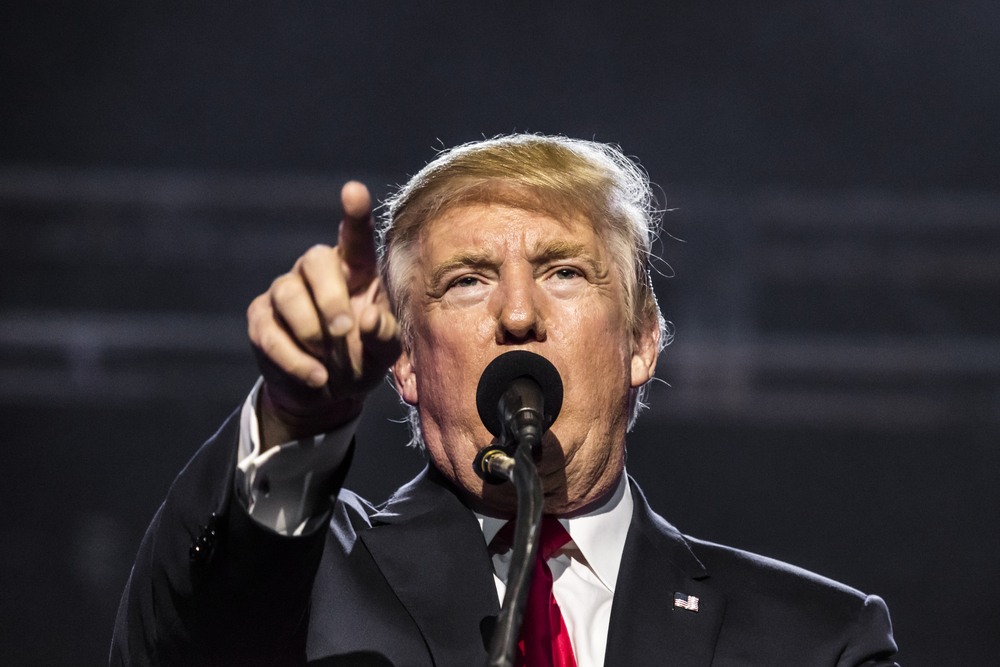The European Union is ready to fight back against President Donald Trump’s trade policies. Here’s what you need to know:
- Trade Tensions Escalate: The EU is preparing to hit back with tariffs on U.S. goods if Trump imposes his threatened tariffs on European products.
- Targeting Trump Voters: The EU’s first round of tariffs aims at products from states that supported Trump, like Harley-Davidson bikes, Kentucky bourbon, and Florida orange juice.
- Auto Industry in the Crossfire: Additional tariffs could target U.S. car plants, especially BMW’s factory in South Carolina, a key Trump-supporting state.
- No Backing Down: European leaders are united in their stance, saying they won’t be bullied by Trump’s trade threats.
EU’s Tough Stance on Trade
The European Union is making it clear: it won’t tolerate Trump’s aggressive trade policies without a fight. European officials are working on a plan to retaliate if the U.S. moves forward with tariffs on European goods.
“Our message to Trump is simple: we won’t let ourselves be bullied,” said Bernd Lange, a top European Parliament official. “We’re ready to defend our companies and families from unfair American measures,” added Belgian lawmaker Kathleen Van Brempt.
Targeting Trump’s Base
The EU’s strategy is smart. Its first wave of tariffs would target products from states that strongly supported Trump in the last election. For example:
- Harley-Davidson Motorcycles: These bikes are made in Wisconsin, a state Trump won in 2016.
- Kentucky Bourbon: This punishment could hurt Kentucky, a state that overwhelmingly voted for Trump.
- Florida Orange Juice: Florida, another key battleground state, could feel the pain.
The goal? To make sure Trump’s voters feel the impact of his trade war.
Auto Industry in the Crossfire
The EU isn’t stopping there. If the U.S. keeps pushing, European retaliation could hit the auto industry hard.
German carmaker BMW, for instance, has a major plant in Spartanburg, South Carolina. This plant exported nearly 225,000 vehicles last year. South Carolina is a conservative state that voted for Trump. If tariffs are imposed, BMW could be the first to suffer.
Why This Matters
This trade war could have big consequences for both the U.S. and the EU.
- Economic Pain: Tariffs could raise prices for consumers, hurt businesses, and cost jobs.
- Global Impact: A trade war could slow down the global economy and create uncertainty for investors.
- Political Fallout: The fight could strain relations between the U.S. and its allies, making it harder to work together on other issues.
The EU’s Strategic Response
European leaders are not taking Trump’s threats lightly. They’re preparing to retaliate swiftly and effectively.
For now, the EU is waiting to see what Trump does next. But it’s clear: Europe is ready to fight back.
Lessons from Past Trade Wars
Trade wars are rarely won. They often lead to higher prices, lost jobs, and economic slowdowns. For example:
- In 2018, Trump’s tariffs on steel and aluminum led to retaliation from Canada, Mexico, and Europe.
- The result? Higher costs for U.S. businesses and consumers, especially in industries like construction and car manufacturing.
History shows trade wars can hurt everyone involved.
The Road Ahead
The EU’s tough stance sends a clear message: it won’t back down in this trade fight. But the hope is that Trump and European leaders can find a way to avoid further escalation.
Until then, the world watches as two of the largest economies prepare for battle. One thing is certain: no one wins in a trade war.
